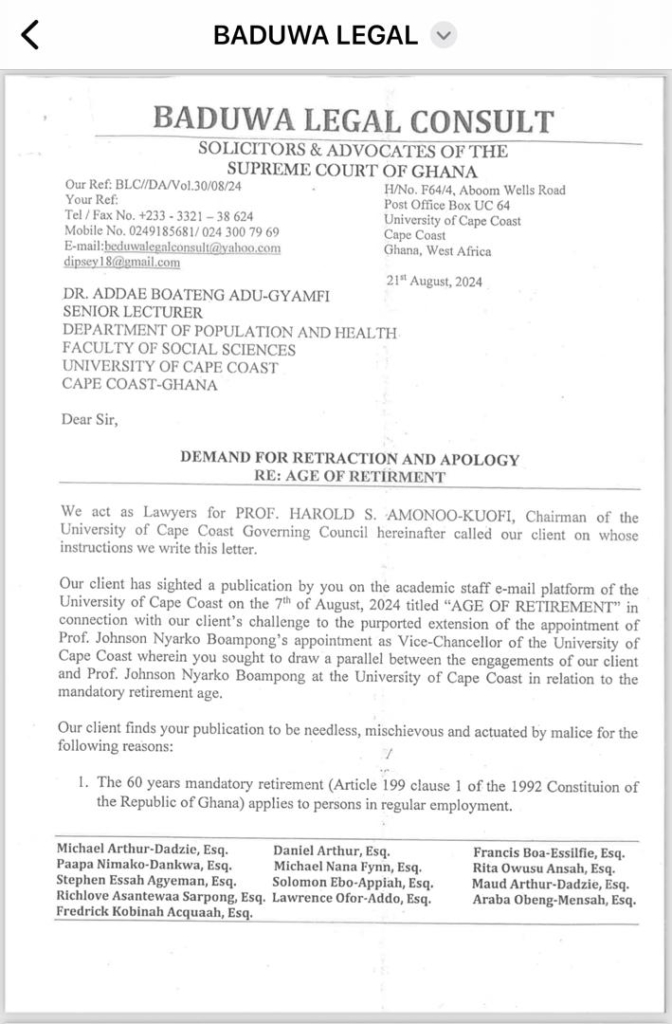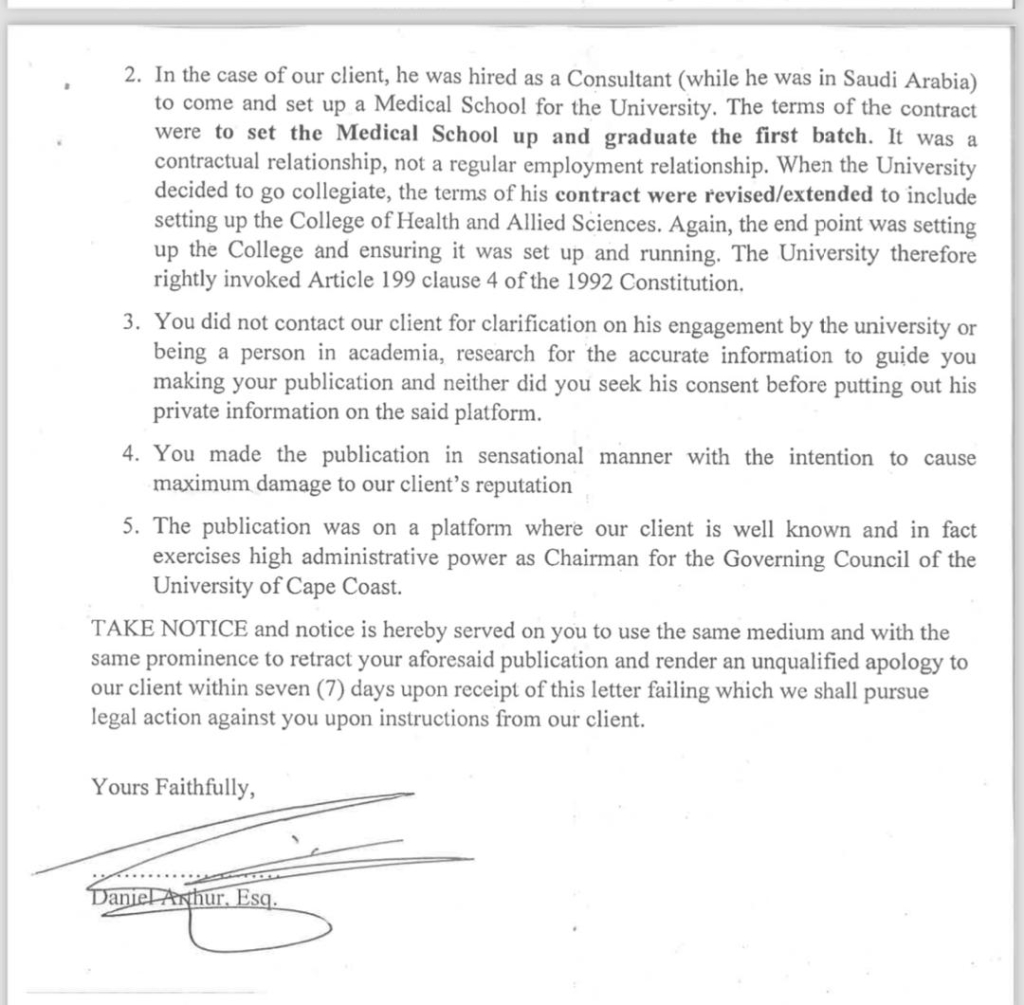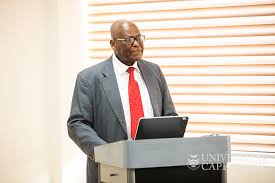
Audio By Carbonatix
The Chairman of the Governing Council of the University of Cape Coast (UCC), Prof. Harold Stewart Amoono-Kuofi, has threatened legal action against a senior lecturer at the university, Dr. Addae Boateng Adu-Gyamfi, over a publication on an e-mail platform about him.
According to a letter by Prof. Amonoo-Kuofi’s lawyers, Dr. Adu-Gyamfi's post regarding the council chair’s retirement was sensational and intended to damage his reputation.
The publication, titled "AGE OF RETIREMENT," was shared on the academic staff email platform of the University of Cape Coast on August 7, 2024.
It allegedly drew a parallel between the retirement age engagements of the Council Chair and the Vice-Chancellor.
Prof. Amonoo-Kuofi is demanding that Dr. Adu-Gyamfi retracts the publication and issue an unqualified apology using the same platform within seven days of receiving the letter, failing which he risks a legal action.
The letter outlines several points, including the assertion that the 60-year mandatory retirement age specified in Article 199, clause 1 of the 1992 Constitution of Ghana, applies to regular employment, not contractual relationships like Professor Kuofie's, who was engaged as a consultant to set up the Medical School at the university.
The letter also notes that Dr. Adu-Gyamfi did not seek clarification or consent from Professor Amonoo-Kuofi before publishing private information, accusing the lecturer of making the publication with the intent to cause maximum damage to the council chair's reputation.


Prof. Amonoo-Kuofi’s lawyers sum up the reasons why the lecturer’s publication on the WhatsApp platform is needless, mischievous and actuated by malice as follows:
- The 60 years mandatory retirement (Article 199 clause 1 of the 1992 constitution of the Republic of Ghana) applies to persons in regular employment.
- In the case of our client, he was hired as a Consultant (while he was in Saudi Arabia) to come and set up a Medical school for the University. The terms of contract were to set the Medical School up and graduate the first batch. It was a contractual relationship, not regular employment relationship. When the university decided to go to collegiate, the terms of his contract were revised/extended to include setting up the College of Health and Allied Sciences. Again, the end point was setting up the College and ensuring it was set up and running. The university therefore rightly invoked Article 199 clause 4 of the 1992 constitution.
- You did not contact our client for clarification on his engagement by the university or being a person in academia, research for the accurate information to guide you making your publication and neither did you seek his consent before putting out his private information on the said platform.
- You made the publication in a sensational manner with the intention to cause maximum damage to our client’s reputation
- The publication was on a platform where our client is well known and I fact exercises high administrative power as chairman for the governing council of the university of Cape Coast
Latest Stories
-
Uproar as UG fees skyrocket by over 25% for 2025/2026 academic year
44 minutes -
Japan PM joins fight for more female toilets in parliament
2 hours -
Ga Mantse declares war on fishing industry child labour
2 hours -
Adom FM’s ‘Strictly Highlife’ lights up La Palm with rhythm and nostalgia in unforgettable experience
3 hours -
OMCs slash fuel prices as cedi gains
4 hours -
Around 40 dead in Swiss ski resort bar fire, police say
5 hours -
AFCON 2025: Aubameyang and Nsue make history among oldest goalscorers
6 hours -
AFCON 2025: How Kwesi Appiah’s Sudan qualified for round of 16 without scoring any goal
7 hours -
Ghana is rising again – Mahama declares
7 hours -
Firefighters subdue blaze at Accra’s Tudu, officials warn of busy fire season ahead
8 hours -
Luv FM’s Family Party In The Park ends in grand style at Rattray park
8 hours -
Mahama targets digital schools, universal healthcare, and food self-sufficiency in 2026
8 hours -
Ghana’s global image boosted by our world-acclaimed reset agenda – Mahama
8 hours -
Full text: Mahama’s New Year message to the nation
8 hours -
The foundation is laid; now we accelerate and expand in 2026 – Mahama
8 hours

